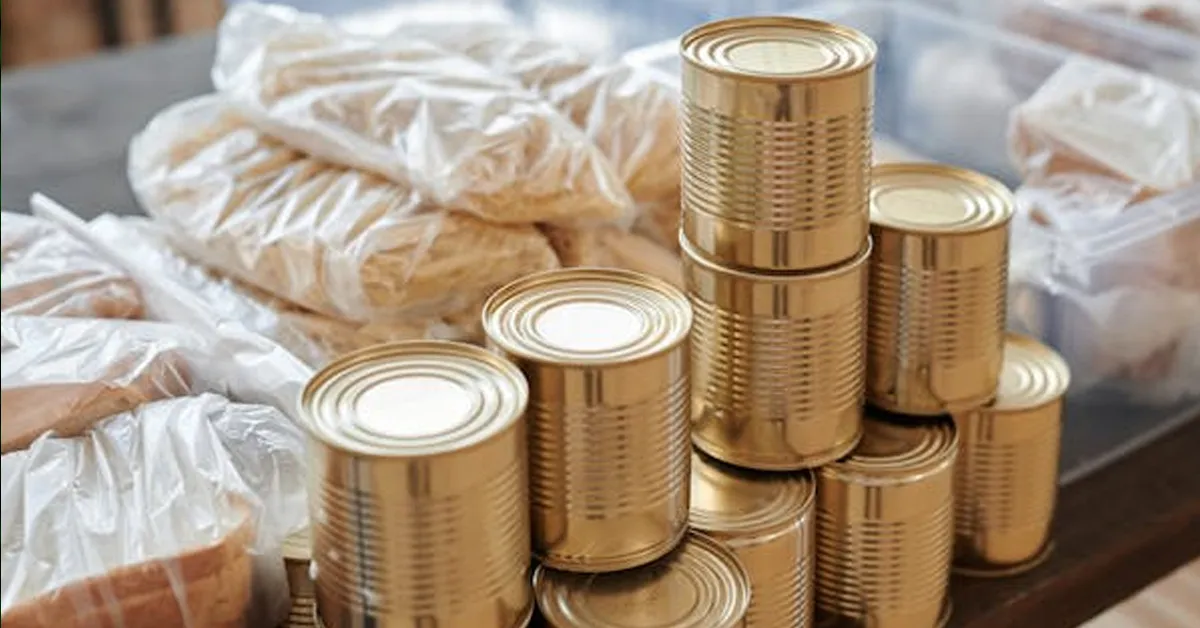Is a Food Crisis Looming? EU Urges Citizens to Stockpile Essentials Now!
In a significant move aimed at enhancing public preparedness, the European Union (EU) has officially urged its citizens to stockpile food, water, and other essential supplies to last at least 72 hours in case of emergencies. This advisory comes in response to rising concerns over potential crises, including geopolitical tensions, disease outbreaks, and climate-related disasters that threaten food security across the continent.
The call for stockpiling is part of a broader strategy to improve resilience against various threats. According to Preparedness and Crisis Management Commissioner Hadja Lahbib, today’s threats are interconnected and more complex than ever. Lahbib emphasized the need for civilians to support military operations during crises, particularly during the critical first three days of an emergency.
The EU’s recommendation is not merely a precaution; it reflects a growing anxiety among European nations regarding the potential for war, disease, and climate change to disrupt essential supply chains. This initiative aligns with similar recommendations made by other countries, such as France, Finland, and Sweden, which have developed their own emergency preparedness plans in recent years.
The Rationale Behind the Stockpiling Advice
-
Geopolitical Tensions: The ongoing conflict in Ukraine and warnings from NATO Secretary-General Mark Rutte about potential military aggression from Russia by 2030 have heightened security concerns in Europe.
-
Climate Change: Increasingly unpredictable weather patterns and natural disasters have raised alarms about food production and distribution, making self-sufficiency more crucial than ever.
-
Public Health: The COVID-19 pandemic underscored the importance of being prepared for sudden disruptions to everyday life, including access to food and medical supplies.
The EU’s guidance includes practical tips on what types of food and essentials to stockpile, such as non-perishable items, water, and basic hygiene products. Citizens are encouraged to maintain supplies that can sustain them for three days, ensuring self-sufficiency during emergencies. The EU emphasizes the importance of being proactive rather than reactive in the face of potential disruptions.
Community Engagement and Coordination
Authorities are also encouraging communities to engage in discussions about preparedness and to share resources and information. This initiative aims to foster a culture of resilience and self-reliance among citizens, which is particularly important given the varying levels of crisis preparedness among EU member states.
The stockpiling initiative has sparked conversations among citizens about the importance of food security and self-reliance in uncertain times. Many people are now considering how they can better prepare themselves and their families for potential emergencies. Community workshops and local discussions are being organized to raise awareness about the importance of emergency preparedness.
A Structured Approach to Crisis Management
The EU’s preparedness strategy includes around 60 key actions to be implemented over the next two years to enhance resilience across member states. This approach aims to avoid ad hoc reactions to crises, advocating for a more structured and planned method to emergency management. The EU is also calling for the establishment of a strategic reserve of critical resources, including medical supplies and energy equipment.
Notably, not all EU member states have the same level of crisis preparedness, prompting calls for better coordination and resource sharing among nations. The EU’s strategy encourages member states to work together in their emergency responses, ensuring that resources are available where they are needed most.
Conclusion: A Call to Action
As the EU urges its citizens to stockpile essential supplies, it is clear that the landscape of crisis management is evolving. The interconnectedness of today’s threats necessitates a collective response that prioritizes preparedness and resilience. Citizens are encouraged to take this advisory seriously, recognizing that being prepared is not just an individual responsibility but a communal one.
In uncertain times, the importance of food security and self-reliance cannot be overstated. By heeding the EU’s advice and engaging in proactive measures, citizens can contribute to a more resilient Europe. As Lahbib aptly noted, the initial 72 hours of a crisis are crucial, and every citizen’s preparedness can make a significant difference in supporting not only themselves but also their communities during challenging times.
In light of these developments, it is imperative for citizens to begin stockpiling essential supplies and to engage with their communities in discussions about emergency preparedness. The future may hold uncertainties, but with proactive measures, individuals and communities can enhance their resilience against potential crises.






Leave a Comment